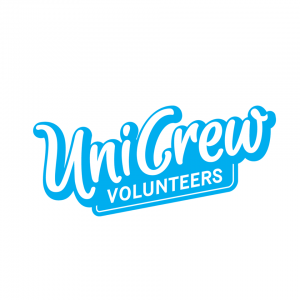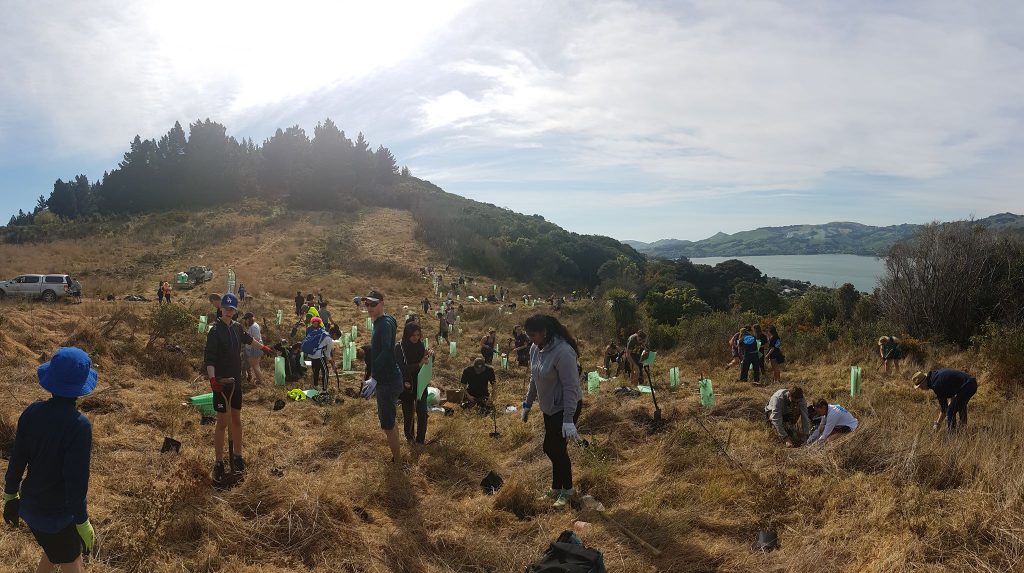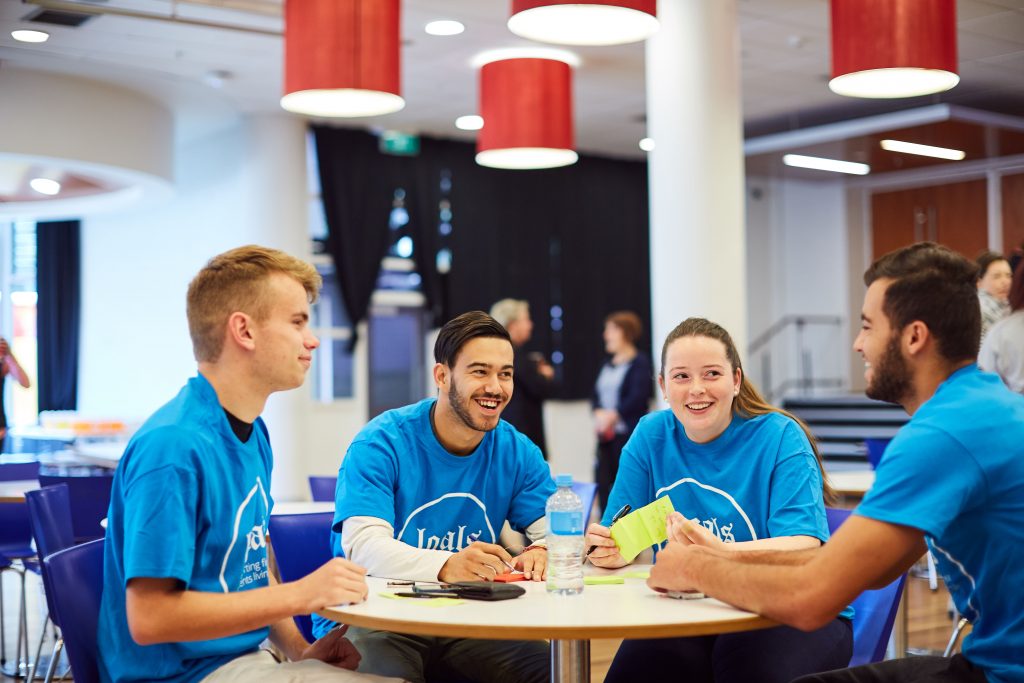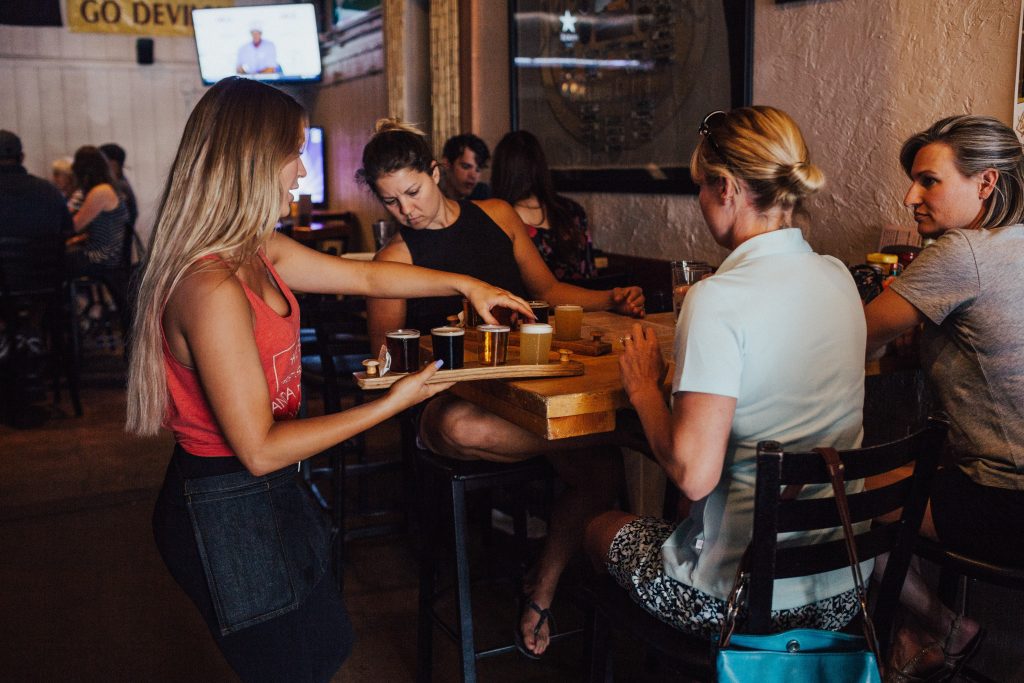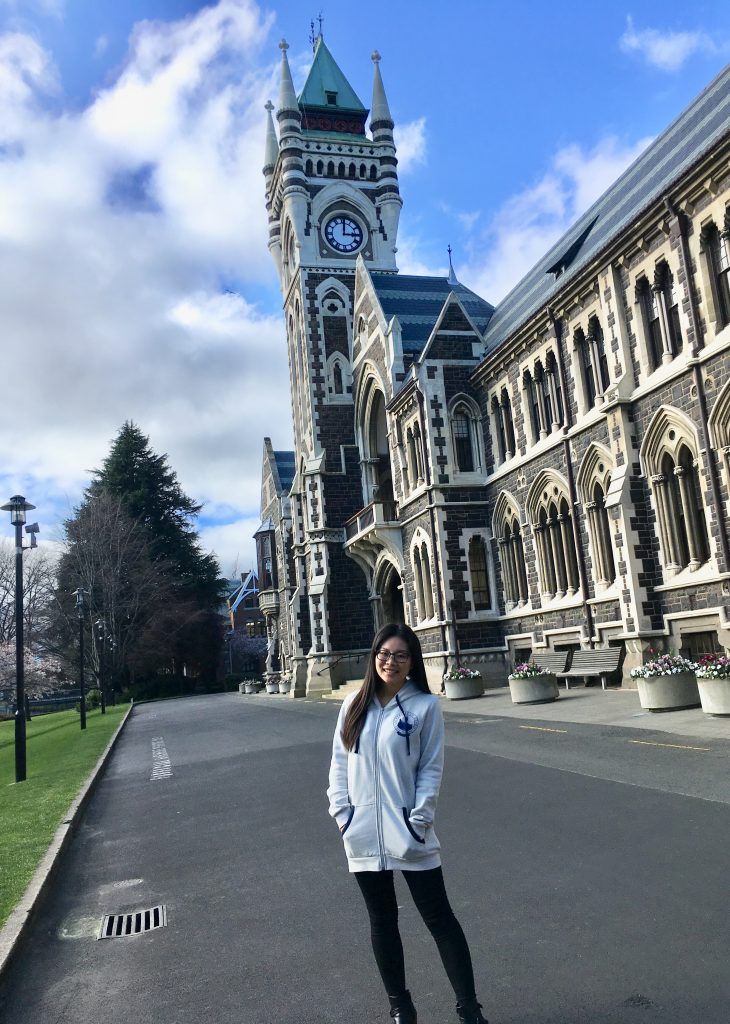The increasingly popular trend of volunteer work at the University of Otago – what are the benefits?
I attended a career presentation last week, held by the University of Otago Career Development Centre that reported on the forecasts and trends in the international market when it came to AI (artificial intelligence) and robots and the impact that this technology would have on human careers. One thing was abundantly clear, robots and AI will never replace the unique blend of characteristics and empathy that make us human. Another notable mention was that the new intake of generation Z students at Otago, are very concerned about social responsibility, and motivated to making a difference to the world. This semester the number of students volunteering through UniCrew, the University of Otago’s flagship volunteer programme, has reached an all-time high, and it’s student volunteer week this week, so let’s find out a bit more about what volunteering can do for you, the wider community and your CV!
UniCrew
UniCrew began in 2014, the idea behind it being that students get matched up with local organisations through volunteering and social impact opportunities. This would then provide a way of connecting and engaging students with the wider community, building relationships around projects and subjects that matter and getting hands on experience outside of the university lecture theatres and classrooms . Since then UniCrew has over 200 organisations registered with them, and they offer a range of long term, short term or micro one-off events that students can be involved in, plus they connect “every volunteering opportunity and community organisation to the United Nation’s global goals in the mission to leave the world at a better place by 2030. By measuring ourselves against these goals, we are able to measure our impact in the global context, find areas of development in which we can improve on and champion sustainable development by educating every young person and organisation in UN’s Sustainable Development Goals.”
What kind of volunteer work can I do?
There are so many options, whether you like the idea of getting outside and planting out trees like the UniCrew volunteers pictured above, or collecting donations for Dunedin’s Wildlife Hospital or be involved with the Yellow Eyed Penguin Trust? Or perhaps if you enjoy being around children sign up for the Reading Oasis programme, or the Garden to Table programme which teaches how to grow, harvest, prepare and share food. Longer term, short term and one off options are available and it is the intrinsic benefits that you’ll feel that will probably be the most rewarding part of this kind of work.
Volunteer work on your CV
After attending the career presentation last week, and talking with University of Otago career advisors, it is clear that volunteering work is looked at very favourably from an employer perspective. In many respects, volunteer work may be seen and used as a form of internship. Let alone the fact that the connections that you make volunteering, around subjects and projects that interest you, may very well lead you straight into the path of a future employer. Showing you are interested, giving your unpaid time to something you care about is showing initiative, social responsibility and it’s also giving you hands on experience outside of study.
Made with love
UniCrew got the call from O-Red, the student group associated with the Otago Red Cross the day after the Christchurch mosque attacks to ask “students and staff to bake, and write letters of support and thanks to Muslim and migrant families in Dunedin, and to Christchurch police and hospital staff – and they were overwhelmed by the response.
Manager of Otago’s Volunteer Centre Sze-En Watts says more than two cubic metres of baking was dropped off at OUSA Clubs and Societies building on Albany Street between 1pm and 7pm on Wednesday, as well as many letters and cards.”
Student Volunteer Week
So, if you’re interested in volunteering, or you just want to find out more about the mutual benefits it presents, the Student Volunteer fair is running today from 11am – 2pm at UniCrew Volunteers, 65 Albany Street, Dunedin, or find out more on the UniCrew website – it’s a win, win for everyone if you just take the time to find out more.
Credit to the UniCrew website and the Otago Bulletin Board for the quoted information in this blog
Nicky Richardson is an International Marketing Coordinator at the University of Otago. With degrees in music and marketing, she is a recent graduate of Otago herself – she loves Otago so much she ended up getting a job here!
.
Employability is the new ‘it’ word, what does it really mean?
There is so much jargon in the business world…….buzz words, acronyms that seem to be more confusing to people than helpful half the time… and confusion over what a word or phrase actually means………but we are not afraid to ask the questions here!
We decided to talk to Melissa Fuller about the word ’employability’ – here is her take on this fashionable word.
Soft skills
Employability is the new ‘it’ word, but in simple terms for a candidate looking for a role – it is your soft skills.
So what are soft skills? They are skills outside of your qualification. Skills such as the ability to form relationships, create a customer experience, effectively communicate with others and problem solving. These skills are hard to teach and some people naturally have them.
No prior work experience is irrelevant
The best way to gain those important soft skills is to volunteer, find part time work or summer work. No prior work experience is irrelevant. In any work experience you have developed skills such as listening, following instructions and communicating with a diverse range of people.
Soft skills = transferable skills
These skills are transferable into any role you wish. An example: if you work in a busy restaurant while studying finance, you are able to show your ability to work and listen under pressure. Something that may be important in a finance based role. You can identify what skills outside of your qualification are important by reading the job description or talking to others in the industry.
Sell your particular package of skills
It is important to remember that Dunedin, as well as New Zealand, is built on small to medium size businesses with employee numbers fewer than 30. Investing in employees is a big decision for those employers and an expensive undertaking. ‘Selling you‘ as a package of skills to a potential employer will enhance your chances of becoming employed and help the business.
Learn, grow and develop yourself
Look outside your qualification and create opportunities to learn new skills. Unicrew is a great place to go to try out volunteering. For more information on how to find work while studying in Dunedin, follow us on Facebook. www.facebook.com/getworkready or go to www.getworkready.co.nz for more information.
Melissa Fuller is the energetic, enthusiastic program co-ordinator at ‘Work Ready,’ and she is passionate about helping international students adapt to life in New Zealand and move into employment prior to graduation.
Where are they now? 5 questions and answers with an Otago alumni.
There is no shortage of information on what universities can offer prospective international students in regards to programme choice, entrance requirements, accommodation and lifestyle, but once you have reached your goal and walked the stage to receive your hard earned degree or diploma, what next? Life doesn’t end when your course ends, it is just the beginning! We decided to catch up with University of Otago alumni Joyce Zhang to find out where she is, what she is doing, and her thoughts on what it is like to be an international student studying at Otago.
What did you study and why?
I studied English at the University of Otago Language Centre and Foundation Year UOLCFY and then studied telecommunication (Postgraduate Diploma in Science) in information science department which is on the ninth, tenth and eleventh floors of the Otago Business School building. It was the same major as my Bachelor degree, everyone in my bachelor class in China pursued a higher degree as we believe it will lead to better employability. I thought ‘why not improve my English along with a higher qualification’ so I decided to go overseas.
Where are you now?
I am working as a China Representative for the University of Otago and I am based in Guangzhou, China. I look after student recruitment and partnership engagement in the China market for the Otago University International Office (which I am very proud of – it is a dream for me to work for my university 
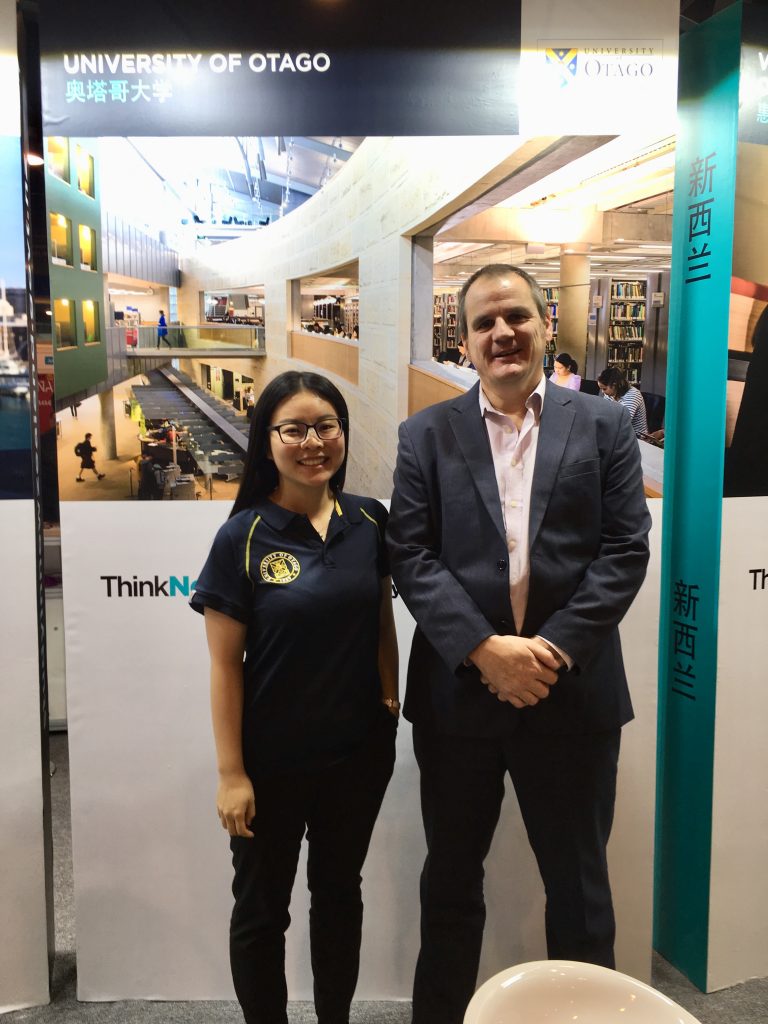
Joyce Zhang pictured here with Regional Marketing Manager for China, Dan Prain at an Education NZ Fair in Beijing, China last month.
Fondest memory of Otago
My fondest memory of Otago was my international friendships – you never lose them even though you’re not in the same country. A Japanese girl I met in Language Centre helped me a lot to improve my oral English so I achieved IELTS 7 in speaking after only 1 month of my arrival in NZ. A Korean girl with a working holiday visa invited me to visit her in Seoul two years ago, and we went to Shanghai Disneyland this March. I also met a nice couple from Denmark who studied as exchange students and we visited the Dunedin Chinese Garden and went skiing together. I am so proud of all these friendships and value them as treasures in my life… I know that I will never forget them and that they will never forget me and we keep in touch on social media.
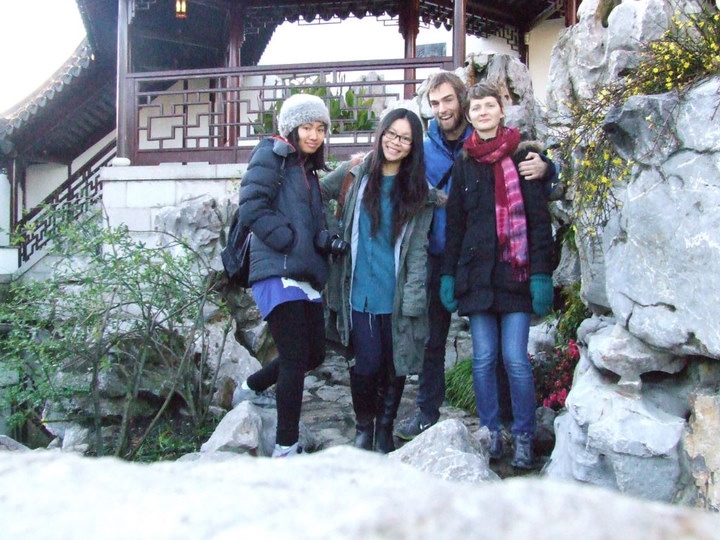
Joyce Zhang (pictured second from the left) at the Dunedin Chinese Garden with other postgraduate students she met and made friendships with whilst studying at Otago.
What advice would you provide for incoming international students about Otago?
Make friends and experience as much as you can. You might worry about your English, safety about travelling and all sorts of stuff, but please don’t stop exploring. Join in peer programmes, language exchange programmes, mentee and mentor programmes. There are many kinds of useful programmes designed for international students that will give you real engagement and help you become a true Otago student.
And just because we like to keep things a little bit light hearted, we thought we would throw in a random question…….
If you were on a deserted island and could only bring three things, what would you bring and why?
Hmmm water, food and… a boyfriend??!! Even if I was isolated, I can still be alive and enjoy every min as long as I can!
If you want to maximise your employment opportunities with further study, want to improve your English speaking and make life long friendships, be like Joyce and find out more about studying at Otago!
Nicky Richardson is an International Marketing Coordinator at the University of Otago. With degrees in music and marketing, she is a recent graduate of Otago herself – she loves Otago so much she ended up getting a job here!
Post-Study Work Visas – what’s changing?
Are you thinking about staying to work in New Zealand after you graduate from the University of Otago? Or maybe you are considering the University of Otago as a study destination and wondering whether you can work in New Zealand after graduating? In this post, Anna explains the recent changes to post-study work rights for international students
Recently the New Zealand Government announced changes to the conditions and length of the post-study work rights for international students. These changes will start from 26 November 2018.
The new changes will mean most students who graduate from the University of Otago will experience fewer visa applications, a greater freedom to work and potentially less risk of exploitation by employers.
Post-study work visas will be granted with ‘open’ work conditions. The ‘open’ work conditions mean that your visa is not linked to any employer and will allow you to work in almost any job, for any employer, anywhere in New Zealand after finishing your New Zealand study.
How will this change affect you?
We would really like to answer this question in detail here. However, your eligibility for the post-study work visa, and the duration that will be granted, does depend on a number of factors including when you started your qualification, your qualification level and the length of your study in New Zealand.
To help you understand the changes, Immigration New Zealand have put together an information factsheet and list of frequently asked questions to assist international students. We recommend that you take a look at this information first and then, if you need further assistance with finding the right information for your situation, you can contact our office for support.
Prepare for your future career in New Zealand
Consider volunteering while you are studying – this is a great way to help develop skills that add to your CV (also known as a resume) and enhance your future employability. Remember, employers are not just looking at your academic record but also value real-life experience. Volunteering may also provide you with an opportunity to explore Dunedin, engage with the local community and culture, meet new people and practice your English. The University Volunteer Centre is on campus and offers an easy way to get involved in volunteering.
We also suggest you make use of the University of Otago Career Development Centre, which is available to all students, including international students. This is a great resource on campus to help you plan your career path, prepare for the job market, and develop a NZ-style CV. Do not wait until after you have graduated to talk to them, the best time to make use of their services is after completing your first year of study (or as soon as you arrive if you are only here for a year).
Know your work rights in New Zealand
Student visa holders with work conditions and work visa holders have the same rights and responsibilities as New Zealand workers. It is a crime for employers to exploit you or impose illegal working conditions. Immigration New Zealand have some information about migrant exploitation on their website, and international students studying at the University of Otago can also contact our team of international student advisors for support and advice.
Anna McLachlan is the Team Leader, Compliance Services in the International Office. Anna and her team members, Kathy and Angelique, provide a student visa renewal service on campus and are available to assist students with student visa and insurance queries. If you need help with finding information about post-study work visa category, you can also contact them by emailing student.visa@otago.ac.nz

